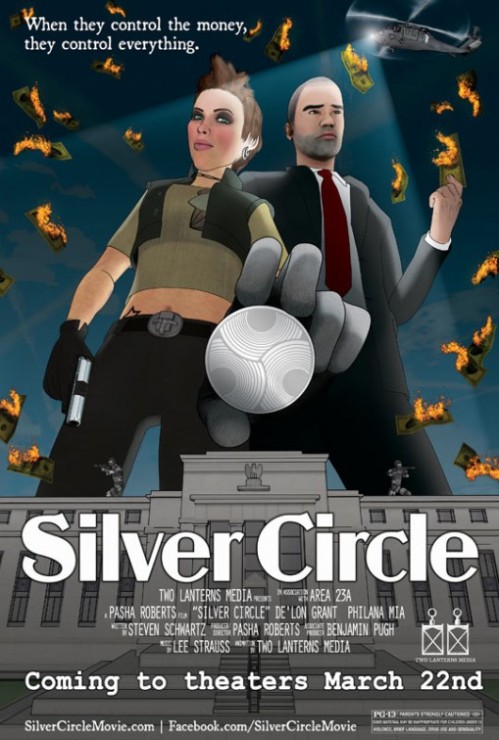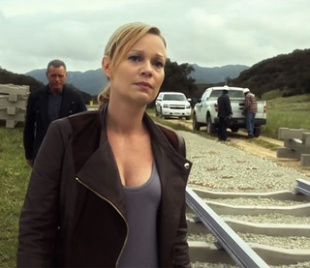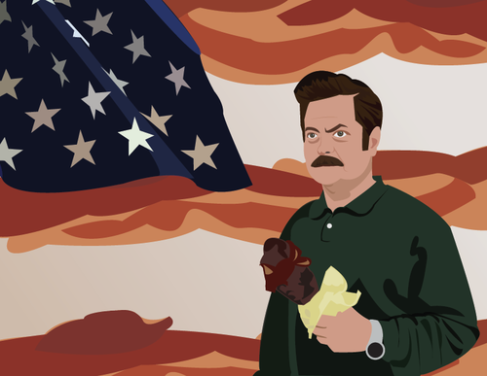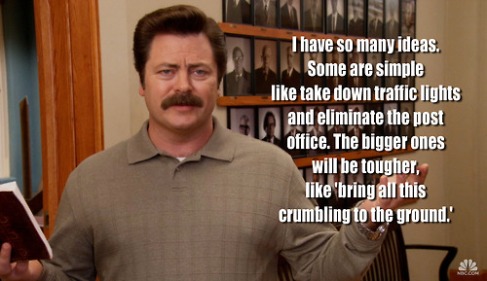Was looking though an old scrapbook and found this article – yes, a scrapbook. God, I’m old. Posting it here in its entirety since Reason doesn’t seem to have archives from 1989.
HENDERSON’S LAW OF HEROIC MOVIES By David R. Henderson
Copyright July 1989 David R. Henderson and/or Reason Magazine
“David, I rented a movie for tonight that looks interesting but I’m not sure you’ll like it. It’s called The Milagro Beanfield War. Robert Redford directed it, and I think it’s left-wing and antibusiness.”
“Really?” I asked my wife, Rena. “What is it about?”
“It’s about these poor Chicano farmers in New Mexico or somewhere who steal water from a big business to irrigate their beans. The movie treats them as heroes.”
“I bet they don’t steal it,” I beamed confidently. “I’ll bet you that they just reclaim it after the big business, with the government’s help, had already grabbed their water.”
Rena looked at me skeptically. Why was I so sure? Because of Henderson’s Law of Heroic Movies. Henderson’s Law states that anitbusiness movies that have heroes are always based on, or consistent with, a libertarian premise.
I formulated this law after seeing and enjoying a lot of movies that liberal friends expected me to dislike on ideological grounds. Sure enough my law was confirmed by The Milagro Beanfield War, which is, incidentally, not only pro-freedom and heroic but also very good.
The movie A Christmas Carol, based on Charles Dickens’s novel, is another example. Because it is an attack on businessmen, liberal friends are sometimes surprised I love it – especially the 1951 version with Alaistair Sim. But A Christmas Carol is profoundly profreedom. It does not question Scrooge’s right to keep his money for himself but rather his wisdom in denying himself the pleasure of giving. In one of the final scenes, Scrooge dances around the room with joy because he realizes it is not too late to change. He is excited, not because he can now go out and vote to have the government spend other people’s money but because he can now personally, voluntarily help those around him.
But why is Henderson’s Law true? Why aren’t movie with heroes based on antilibertarian premises? There are two reasons. Both should give us hope for our cultural and political future.
First, even though many movie scriptwriters and directors are left-wing, they must think that a heroic antilibertarian movie will not make money. The know – implicitly or explicitly – that people who want a heroic movie want to have no qualms about supporting the hero. So they must enlist the hero in a just cause. The only kind of just cause that they can be sure the public will support is one based on an individualistic view of justice. Because the public, although most of them don’t know it, have a profoundly libertarian view of justice.
Skeptical? Then consider. Which plot would stir the juices of American moviegoers: one where the hero stole money from a corporation that succeeded by being honest with people, or one where the hero stole money from a corporation that had been cheating people? To ask the question is to answer it. The second movie is the only possible contender.
Push the analysis further. Normally, when a corporation cheats someone, the person cheated can sue. But sometimes that doesn’t work. When it doesn’t, it is typically because the legal system is not doing its job of protecting people from fraud. So the hero who steals money from the cheating corporation is trying to achieve the profreedom outcome that the legal system was supposed to provide.
The second reason that left-wing screenwriters and directors often adopt libertarian premises is that they themselves are profoundly libertarian. To believe in heroism is almost necessarily (Ayn Rand would probably cut the almost) to believe in freedom. But writers and directors usually don’t understand how the market works, and they think that big corporations, shielded by a corrupt legal system, are always ripping people off. In other words, they are antibusiness because of profreedom values coupled with a mistaken view of how the market works.
Henderson’s Law also holds for books, movies, and TV shows. Take Robin Hood. We hear that he was a hero because he robbed from the rich to give to the poor. Robin Hood would be a clear-cut exemption to Henderson’s Law if the rich he robbed had earned their money. But invariably Robin Hood’s rich victims are those who themselves robbed first. Robin Hood reclaimed from the rich and gave back to the poor.
I have not yet found an exception to Henderson’s Law, and not for lack of trying. When I think I have one, it turns out either to be consistent with libertarianism or to lack a hero.
Take Norma Rae, a movie about a worker at a cotton mill who grows out of her low self-image and who courageously and effectively fights to unionize the mill. The movie qualifies as heroic. It is also consistent with libertarian premises. The turning point for the union’s success comes when Norma Rae’s father – who also works at the mill – dies because his employer refuses to let him sit down during a heart attack. The employer clearly violated an implicit contractual agreement: I know of no advocate of freedom who thinks that when you agree to work for someone, you also agree not to take a break during a heart attack.
Of course, when the union forms, the large minority of workers who voted against it will be represented by the union against their will. Forcing a bargaining agent on these people and forcing them to pay dues as well violates the workers’ right to choose their own representatives, not to mention the employer’s rights. But nowhere does the movie even hint that those who oppose the union will be forced to join. If the movie had covered this issue, then Norma Rae’s heroism would not have been so clear-cut. The only way the director and scriptwriter could keep the movie both heroic and prounion was to mislead moviegoers about the antifreedom aspects of unions under American labor law. American labor law, not Norma Rae, is antifreedom.
Country is another apparent exception that turns out to be consistent with Henderson’s Law. This movie portrays as a hero a woman, played by Jessica Lange, who tries to hold on to her farm and to prevent the government from foreclosing on it. I could nitpick and say that the movie is not antibusiness because the government, not business, is foreclosing. But I won’t, because one can easily imagine a business doing the same thing. The more relevant points are that the government is not portrayed as clearly villainous and that the heroine attempts to hold on to her farm within the law. The neighbors help out, not by breaking laws or by violating property rights, but simply by refusing to buy her assets, a very creative use of their freedom.
Of course, in the late ’60s many antibusiness movies were hostile to freedom. But they were also antiheroic, and therefore not exceptions to Henderson’s Law.
Henderson’s Law gives me hope. That heroic movies are based on or consistent with the principles of freedom means that millions of people can see as heroic only someone whose actions do not violate others’ rights. This shared belief in freedom is a huge common ground. What remains, if believers in freedom wish to persuade people, is to show them this common ground and then to address the factual issues on which we disagree, the main one being whether corporations can easily rip people off without the government’s help. Those who love heroes love freedom.
Contributing Editor David R. Henderson, an economics professor at the Naval Postgraduate School and a former White House economist under President Reagan, loves heroic movies.













You must be logged in to post a comment.